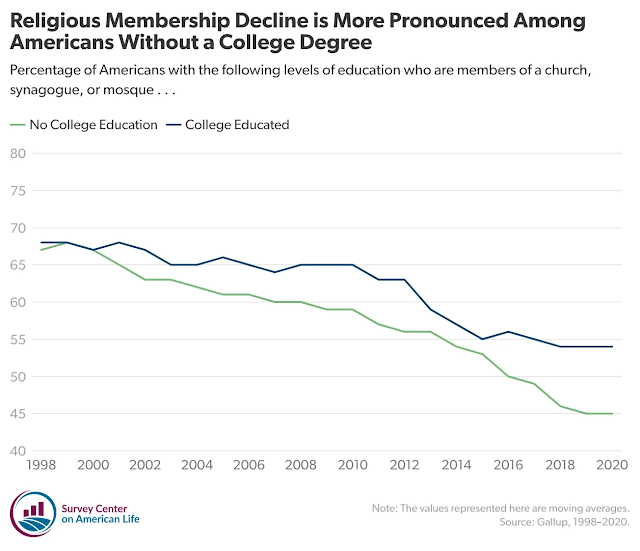Religion and Class
Daniel Cox:
It has long been presumed, and in some cases feared, that higher education—and the widespread availability of information and knowledge via the Internet—would undermine religious commitments. Actual evidence for this is lacking. While religious doubting has grown in recent years, the most educated Americans show up to services most often. Even as they report less certainty in their religious beliefs, they participate more regularly in worship services. Higher education appears to reinforce regular religious participation.
...
The simplest explanation is that college-educated Americans are more likely to prioritize religious participation and to pass these experiences on to their children. ... The growing class gap in religious attendance is partially attributable to plummeting marriage rates in non-college households. Three decades earlier there was only a modest gap in marriage rates between Americans with a college degree and those without. The gap has since tripled in size and continues to grow. For a number of reasons, married people tend to be more religiously active, whether it’s due to having greater personal and financial resources, more social stability, or firmer desire to raise children in a religious community.
...
One thing that seems clear is that the decline of churches will likely make inequality worse. College-educated Americans are more active and involved in every sphere of American social and civic life, from book clubs and PTA meetings, to sports leagues and town halls. On average, they have more friends, broader social networks, and more extensive ties to the places where they live. If you want a fuller accounting of the abundant ways college graduates reap these social capital benefits, check out this recent report: “The College Connection: The Education Divide in American Social and Community Life.” Churches offer one way to bridge the gap, but fewer Americans are turning to them.

